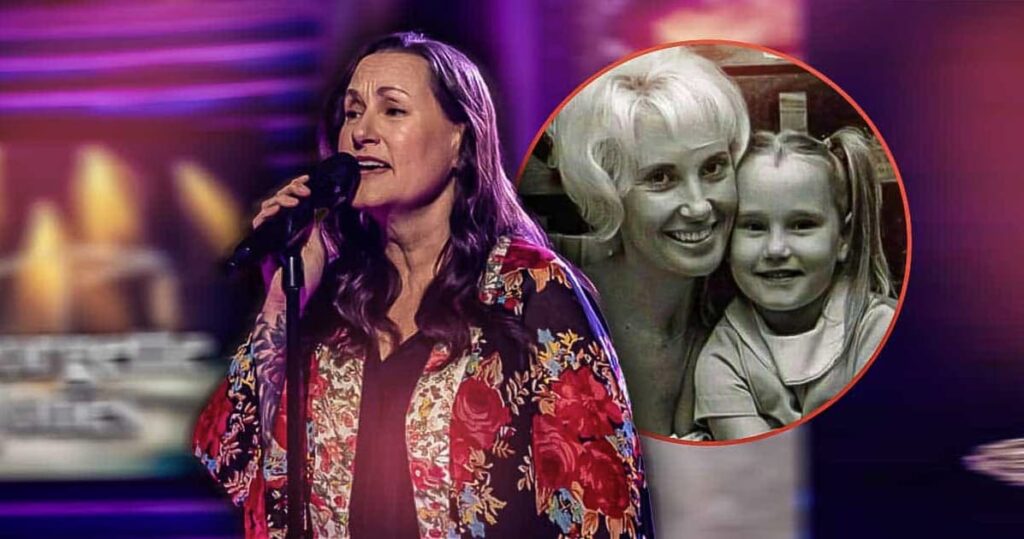
Georgette Jones – “The Race Is On”: A Daughter’s Tribute to Her Father’s Timeless Spirit
When Georgette Jones, the daughter of the legendary George Jones and Tammy Wynette, stepped onto the stage of “Country’s Family Reunion: Second Generations,” she carried more than a microphone — she carried a legacy. Her performance of “The Race Is On,” one of her father’s most beloved hits, was not just a song. It was a conversation across time — between a daughter and the father whose voice defined an era, and between generations of country music lovers who still feel that old familiar ache when they hear those opening chords.
Originally released in 1964, George Jones’ “The Race Is On” became a Billboard Country Top 5 hit, peaking at No. 3 on the chart. Written by Don Rollins, the song cleverly compared heartbreak to a horse race — where jealousy, heartache, and pride all compete for the finish line. It was classic George: witty, soulful, and delivered with that unmistakable twang that could make joy and sorrow sound like two sides of the same coin.
For Georgette, performing this song wasn’t about imitation — it was about remembrance. Her voice, gentle yet strong, carries shades of both her parents. In her version, there’s a tenderness that wasn’t in the original — a quiet reverence that comes from understanding the man behind the legend. When she sings the lines “Now the race is on and here comes pride up the backstretch,” you can almost hear the years of stories, love, and longing that live behind her tone.
“The Race Is On” has always been more than a clever metaphor for lost love. For fans who grew up with George’s music spinning on their turntables, it represented the rhythm of life itself — unpredictable, fast, and full of heart. Hearing Georgette sing it today brings that feeling rushing back, reminding us that even though time keeps moving, the emotions that country music captures never really fade.
Her appearance on “Country’s Family Reunion: Second Generations” — a show that gathers the sons and daughters of country legends — is a testament to how these songs continue to breathe through new voices. When Georgette smiled between verses, it wasn’t the smile of a performer; it was the quiet pride of a daughter keeping her father’s memory alive in the best way she knows how — through song.
In moments like this, the stage becomes more than a place of performance. It becomes a bridge. A bridge between past and present, between George Jones and the countless fans who still miss him, between the old country and those who still believe in its timeless truths.
And as Georgette finishes the final note, you can almost hear her father’s echo — that rich, soulful voice that once defined a generation — whispering back in harmony.
The race may be on, but love like that never loses.